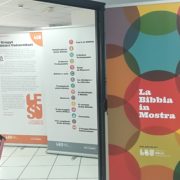According to an old theory, already implicit in Heiddeger’s writings on technology and popularized by a well-known article by historian Lynn White Jr., the Judeo-Christian tradition is the cause of the environmental crisis we are experiencing. If animism and paganism promoted a form of respect for the environment based on the belief that behind the natural elements there were spiritual beings, their defeat would have caused the desacralization of those elements and their transformation into resources to be exploited by man, prince of creation and its ruler. Without the need to historically analyze the validity of this theory, we can recognize how a superficial reading of the Bible may have led some Christians to take an inconsiderate attitude towards the environment.
On the other hand, careful reflection on what the Bible says about our relationship with nature represents the most solid foundation for a commitment to the protection and safeguarding of creation.
It is true that man is created in the image of God and his relationship with Him places him on a different plane from the rest of creation since the beginning of the biblical narrative, yet it is precisely the beginning of Genesis that suggests to us that man has always had a role of responsibility towards the environment:
“The Lord God took the man and put him in the garden of Eden, to work it and take care of it.”
(Gen. 2:15).
In confirmation of this high value that natural elements have in the Christian worldview, we can recall that all of creation has been subjected to the effects of sin and is awaiting the return of Christ (Rom. 8:19-23), for “all things were created by him and for him” (Col. 1:16). Modern environmental concerns should not be foreign to any Christian who takes the truths just mentioned seriously, but there is more: without God, humanity risks losing any valid motivation to protect the environment that does not lead to anti-humanism.
Without God, it seems difficult, if not impossible, to find the balance between anthropocentrism, which has given support to the senseless exploitation of natural resources useful for economic development, and anti-humanism, which, by denying man the right to consider himself more important than other forms of life, turns him into the problem to be contained or eliminated. Neither atheistic materialism nor modern pantheism can provide a solution to this dilemma. Both fail to provide any basis for ethics, or end up equating human life to that of other animals, if not plants (or viruses!).
- Why should I care about the survival of someone other than myself?
- Why would it be wrong to eliminate even a small minority of human beings, if it would bring undoubted well-being to all other life forms on the planet?
- Why would it be right to eliminate a life form like Coronavirus?
Questions for which the answer seems obvious and intuitive suddenly become difficult, if one excludes God from the picture.
The Bible does not resolve questions of environmental ethics with a form of anthropocentrism limited by God’s law, but instead by placing Christ Jesus at the center of all things.
The purpose of creation is to glorify Christ, and God’s plan culminates not in the salvation of man but in the unity of all things under one head, Christ Jesus (Eph. 1:9-10).
Christianity proposes a theocentric humanism that assigns a special role to man and a great value to his life, which, however, is not the ultimate end of things. Human beings are called to contribute to the realization of God’s plan, and they are called to do so also by taking care of the environment.
Francesco Schiano
(GBU staff worker in Naples)





